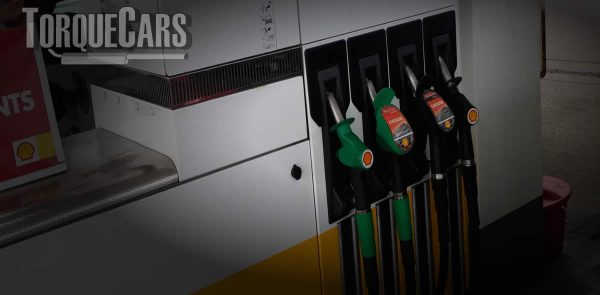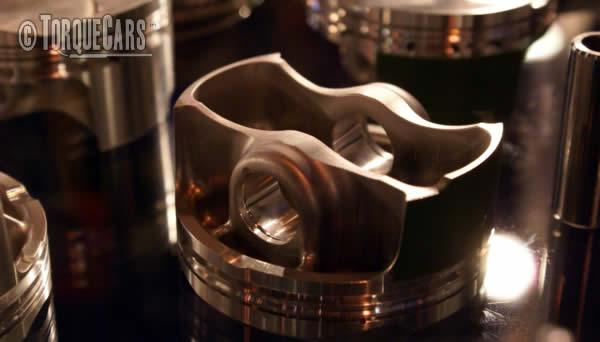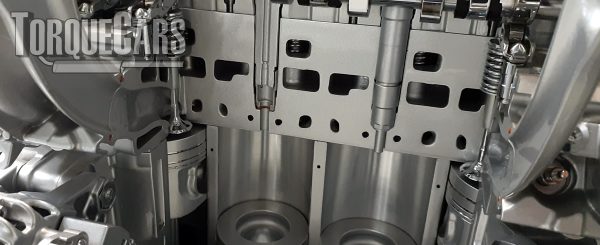Why Diesels Are More Economical
"The Reasons Why You'll Get Better MPG From A Diesel".
Diesel and gasoline engines are two common types of internal combustion engines used to power vehicles. For years I drove gasolene, but my first foray into the world of diesel ownership really opened my eyes.
They offer phenomenal power and torque and return extremely good gas mileage. So the obvious question this raises is why are diesels so much more economical than gasoline engines?
While both are designed to burn fuel and air, there are several key differences that give diesel engines an advantage over gasoline engines when it comes to efficiency.
Have you ever wondered why diesel engines are more fuel-efficient than their gasoline counterparts? Let's take a closer look at the differences between diesel and gasoline engines to understand what makes diesel engines so efficient.
What are the facts about engine efficiency?
Diesel engines are around 45% efficient in the best examples, while gasoline engines can only dream of approaching a 35% efficiency. This is due to the speed at which the fuel burns in the engine.
Gasoline engines can rev up to 22,000 RPMs, while diesel engines have a lower limit of around 7,000 RPMs. This difference in RPMs is because diesel fuel doesn't atomize as well as gasoline and needs to be misted into tiny particles for proper combustion.

This leads to a slight delay in the start of the combustion process, and generally speaking a diesel engine will produce more soot during the burn compared to a gasoline engine.
Please watch our video which covers the main reasons why diesels are so economical. Be sure to keep up with our latest YouTube content and subscribe.
The RPM Ranges Of Diesel vs Gasolene
In terms of RPMs, diesel engines generally have a lower limit compared to gasoline engines. This lower RPM range contributes to the efficiency of diesel engines as there is less friction generated inside the engine, reducing energy losses due to heat.
This leads to a much better thermal efficiency, where typically much power can be lost.
The fact that diesel fuel is an oil that lubricates the inside of the engine cylinders also leads to reduced friction and a longer engine lifespan compared to gasoline engines.
Fuel differences
The primary reason why diesel engines are more efficient is because of the fuel they use. Diesel fuel contains more energy per gallon than gasoline, which results in better fuel economy.
This means that diesel engines can travel further on the same amount of fuel, making them a more cost-effective option for those who do a lot of driving. Additionally, diesel engines are designed to be more efficient in the way they use fuel.
The combustion process in diesel engines is more complete, which means that less fuel is wasted and more energy is extracted from the fuel.
How does compression ratio affect economy?
One major difference is the compression ratio of the two types of engines. In a diesel engine, the air charge is highly compressed before fuel is injected, just before the piston reaches the top dead center.
This high compression ratio results in a higher expansion rate during the power stroke, making diesel engines more efficient than gasoline engines.

Additionally, diesel fuel has a higher thermal efficiency and contains more energy per kilogram, which contributes to the efficiency of diesel engines.
Another reason for diesel engines' efficiency is their high compression ratio. Diesel engines compress air to a much higher degree before the fuel is injected, leading to a more efficient burn. The diesel fuel itself also lubricates the engine, reducing friction and energy loss from heat.
Differences in the actual Combustion Process.
Another factor that makes diesel engines more efficient is the combustion process itself. Unlike gasoline engines, which use a throttle to control the airflow into the engine, diesel engines rely on the amount of fuel added to the mix to determine the power output.
This lack of restriction on the intake, combined with the high compression ratio, leads to a more efficient combustion process.
Gasoline engines control the airflow into the engine with a throttle, leading to a restriction in the intake. Diesel engines don't have this restriction and the power generated is determined by the amount of fuel added to the mix. Diesel fuel contains more energy per kilojoule compared to gasoline, making it more economical.

Finally, diesel engines tend to be heavier than gasoline engines, but recent developments in gasoline engine technology, such as direct injection, are allowing for higher compression ratios and increased efficiency.
In conclusion, diesel engines' efficiency is due to a combination of factors, including their high compression ratio, the misting of diesel fuel for proper combustion, the lubrication provided by diesel fuel, and the lack of a throttle restriction on the intake.
These factors work together to give diesel engines their fuel-saving advantages.
While diesel engines have several advantages over gasoline engines, advancements in gasoline engine technology have allowed for higher compression ratios and more efficient combustion processes.
Direct injection and other technologies have made gasoline engines more competitive with diesel engines in terms of efficiency, but diesel engines still remain a popular choice for vehicles that prioritize fuel economy.
Reasons to Consider Buying a Diesel Engine
Higher Torque
Diesel engines produce more torque than gasoline engines, which makes them more powerful. Torque is the force that rotates the wheels and propels the vehicle forward.
The higher torque in diesel engines means that they can generate more power at lower RPMs, making them more capable of handling heavy loads and towing.
This makes diesel engines a popular choice for trucks and other heavy-duty vehicles.
Longevity
Diesel engines are built to last and are known for their longevity. The reason for this is that diesel engines operate at a much lower RPM than gasoline engines, which means they are less stressed and are less likely to wear out much to the relief of fleet owners who manage high mileage vehicles and need reliable engines.
Diesel engines also have, generally speaking, fewer moving parts and less complexity than gasoline engines, which further reduces the chance of them breaking down. Additionally, diesel engines are designed to withstand high compression ratios, which are necessary for diesel combustion.
This means that diesel engines can run for longer periods of time without the risk of overheating or damage to the engine components.
Lower Emissions
Diesel engines emit lower levels of greenhouse gases compared to gasoline engines.
This is because diesel fuel has a higher energy density, which results in a more efficient combustion process.
The more efficient combustion process also results in lower levels of nitrogen oxides (NOx), which are harmful to the environment. This makes diesel engines a more environmentally friendly option compared to gasoline engines.
It should be noted that catalysts, DPF filters and EGR systems are needed to ensure cleaner emissions, and that in some cases these can affect your cars performance.
Higher Resale Value
Diesel engines hold their value better than gasoline engines, which means that they are more likely to retain their value over time.
This is due to the higher fuel efficiency and longevity of diesel engines, which makes them a more attractive option to used car buyers.
Additionally, diesel engines are often more expensive to purchase than gasoline engines, which further contributes to their higher resale value.
To track your fuel consumption please use our free MPG calculator and let us know in the comments your experiences and feedback on this article and video.
Please Check out my YouTube channel, we're regularly adding new content...
PLEASE HELP: I NEED YOUR DONATIONS TO COVER THE COSTS OF RUNNING THIS SITE AND KEEP IT RUNNING. I do not charge you to access this website and it saves most TorqueCars readers $100's each year - but we are NON PROFIT and not even covering our costs. To keep us running PLEASE Donate here
If you liked this page please share it with your friends, drop a link to it in your favourite forum or use the bookmarking options to save it to your social media profile.
Feedback - What do You Think?
Please use our forums if you wish to ask a tuning question, and please note we do not sell parts or services, we are just an online magazine.
Help us improve, leave a suggestion or tip
Please watch this video and subscribe to my YouTube channel.

 Click to accept YouTube Cookies & Play.
Click to accept YouTube Cookies & Play.